Tertiary Care
Tertiary care provides highly specialised medical treatment for patients requiring advanced expertise, complex procedures, and cutting-edge technology. This level of care includes services such as cardiology, oncology, neurosurgery, orthopaedics, burn care, and organ transplants. Patients are typically referred to tertiary care centres by primary or secondary care providers for specialised intervention and long-term management of complex conditions.

This sector is where medical innovation meets expert care. From highly skilled clinicians to the essential support teams behind the scenes, tertiary care offers rewarding career opportunities for individuals who thrive in high-stakes environments. Whether directly treating patients or ensuring the seamless operation of life-saving facilities, there is a role for every skillset within tertiary care.
Tertiary care roles are ideal for those who
Excel in high-pressure, fast-paced environments requiring precision and expertise.
Have a passion for advancing medical knowledge and applying cutting-edge treatments.
Enjoy working in multidisciplinary teams to improve patient outcomes.
Types of services in tertiary care include:
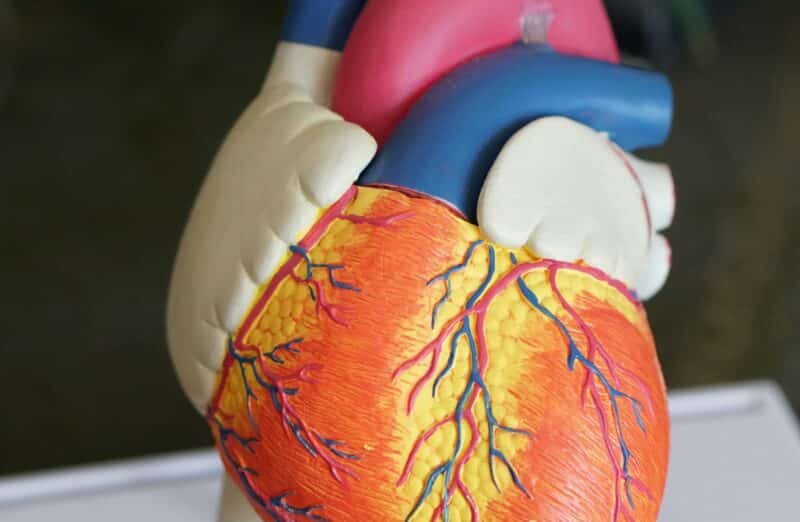
Cardiology centres
Cardiology centres are dedicated to diagnosing, treating, and managing heart and vascular conditions. These facilities provide a range of services, including coronary angioplasty, pacemaker insertion, heart valve repair, and the management of conditions like hypertension and heart failure. Advanced imaging techniques, such as echocardiograms, CT scans, and MRIs, are used to provide precise diagnoses and monitor treatment progress. Many cardiology centres also offer cardiac rehabilitation programmes, supporting patients in their recovery and long-term heart health. Research and development play a critical role in cardiology, with new procedures and drug therapies continuously being tested and implemented to enhance patient care.
Cardiology specialists work in hospitals, research institutions, and outpatient clinics, collaborating with multidisciplinary teams to develop treatment plans and improve patient outcomes. Their focus is on early detection, preventive care, and the latest innovations in cardiovascular health.
A career in cardiology is ideal for individuals who thrive in a fast-paced, high-stakes environment where rapid decision-making and expert knowledge can save lives. Cardiologists and their teams must have excellent analytical skills, attention to detail, and the ability to work under pressure. Whether diagnosing heart conditions, performing intricate procedures, or supporting long-term patient rehabilitation, professionals in cardiology play a crucial role in improving heart health and preventing serious complications.
Those working in cardiology need strong problem-solving abilities and a commitment to staying up to date with the latest medical advancements. This field offers a fulfilling career path for those passionate about improving cardiovascular health and advancing medical science.
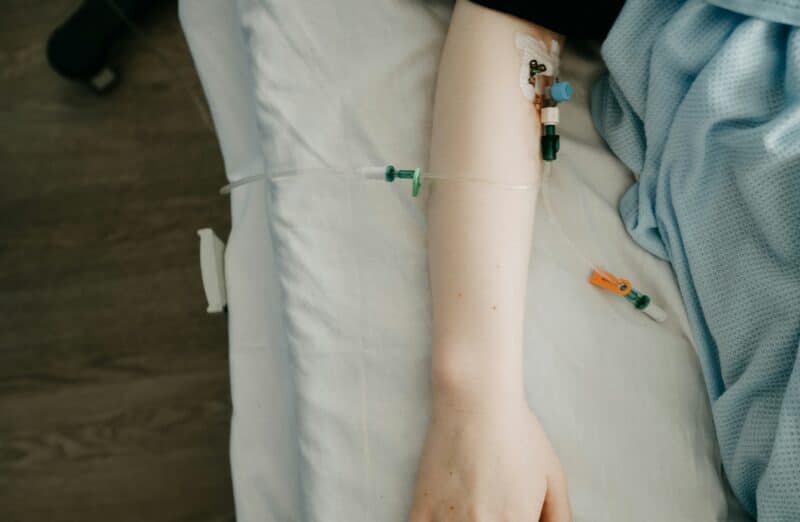
Oncology centres
Oncology centres specialise in the prevention, diagnosis, and treatment of cancer. These facilities provide a full spectrum of care, from early screening and diagnosis to advanced treatment options such as chemotherapy, radiotherapy, immunotherapy, and targeted drug therapies. Oncology teams use cutting-edge technology, including PET scans and genetic testing, to personalise treatment plans for each patient, improving their chances of survival and quality of life.
In addition to direct medical treatment, oncology centres focus on palliative and supportive care, helping patients manage pain, fatigue, and other side effects associated with cancer treatment. Many centres are also involved in groundbreaking research, working to discover new therapies and improve existing treatment methods. Oncology professionals collaborate closely with surgeons, radiologists, and specialist nurses to provide comprehensive patient care.
Working in oncology is ideal for those who are compassionate, resilient, and dedicated to making a meaningful impact on patients’ lives. Whether administering treatments, providing emotional support, or contributing to life-saving research, every role in oncology plays a crucial part in the fight against cancer.
Oncology professionals must possess strong interpersonal skills, an ability to manage complex treatment plans, and a deep understanding of the latest scientific developments. This field is well-suited to those with a passion for innovation and a commitment to enhancing patient care through research and clinical excellence.

Neurosurgery units
Neurosurgery units focus on the diagnosis and surgical treatment of disorders affecting the brain, spinal cord, and nervous system. These specialised centres treat a range of conditions, including brain tumours, epilepsy, traumatic brain injuries, spinal deformities, and cerebrovascular diseases. Neurosurgeons use advanced imaging and minimally invasive techniques to perform highly complex procedures, such as craniotomies, spinal fusions, and deep brain stimulation for neurological disorders.
Beyond surgery, these units work closely with rehabilitation teams to support post-operative recovery, helping patients regain mobility, cognition, and overall functionality. Neurosurgery units are often part of major hospitals and research institutions, where specialists continuously explore new treatment methods and technological innovations, such as robotic-assisted surgery and neuroprosthetics.
A career in neurosurgery is ideal for those who excel under pressure, have a passion for solving complex medical challenges, and enjoy working at the forefront of medical science. Neurosurgeons and their teams require exceptional dexterity, problem-solving abilities, and an ability to remain calm in high-intensity situations.
Whether performing life-saving brain surgeries, assisting with rehabilitation, or contributing to neuroscience research, professionals in this field play a crucial role in advancing healthcare. Neurosurgery offers a rewarding career path for those who are detail-oriented, dedicated to patient recovery, and eager to innovate within a highly specialised medical field.

Orthopaedic centres
Orthopaedic centres specialise in diagnosing and treating musculoskeletal conditions, including fractures, joint disorders, spinal conditions, and sports injuries. These centres provide a range of treatments, from physiotherapy and minimally invasive procedures to complex joint replacement surgeries. Advanced imaging and robotic-assisted surgical techniques help improve precision and patient recovery times.
Patients at orthopaedic centres may receive rehabilitation therapy, including physiotherapy and pain management, to support long-term recovery. Surgeons, physiotherapists, and rehabilitation specialists work closely to create personalised treatment plans that enhance mobility and quality of life.
A career in orthopaedics suits those who enjoy problem-solving, hands-on procedures, and working directly with patients to improve mobility and function. Whether performing surgery, guiding rehabilitation, or researching new treatment methods, professionals in this field make a significant impact.
Those in orthopaedics need strong technical skills, patience, and a collaborative mindset. This field is ideal for individuals interested in musculoskeletal health, physical rehabilitation, and cutting-edge medical technology.

Burn care units
Burn care units provide specialised treatment for patients suffering from minor to severe burns, chemical injuries, and skin grafting procedures. These units focus on acute burn management, reconstructive surgery, pain control, and long-term rehabilitation. Advanced treatments, such as skin grafting, hyperbaric oxygen therapy, and scar management, help to improve patient outcomes and restore function.
Burn centres operate in dedicated hospital units, working closely with plastic surgeons, physiotherapists, and mental health professionals to support physical and emotional recovery. Many units also provide education on burn prevention and post-recovery skincare.
A career in burn care is ideal for professionals who are compassionate, detail-oriented, and skilled in emergency and long-term patient care. Burn specialists must navigate complex cases that require both medical expertise and emotional support for patients.
From performing reconstructive surgeries to guiding rehabilitation, burn care professionals play a crucial role in improving quality of life. This field suits those who can manage critical conditions while offering empathetic patient care in a highly specialised medical setting.
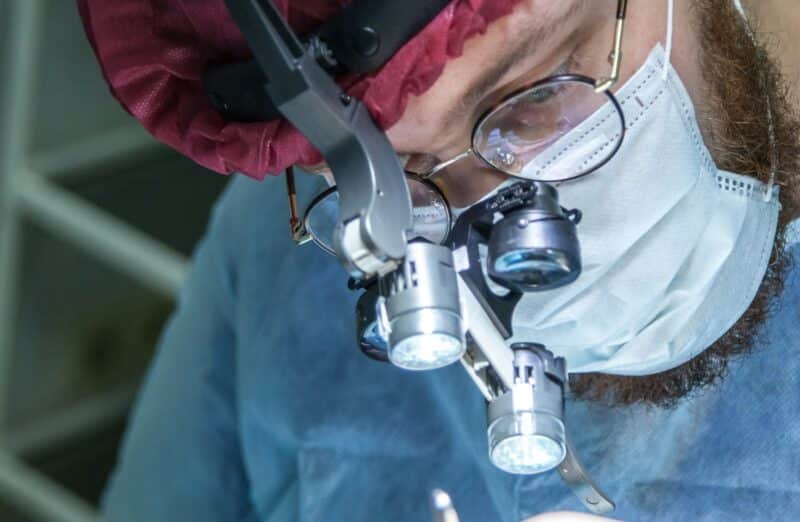
Organ transplant centres
Organ transplant centres provide life-saving procedures for patients with end-stage organ failure. These centres specialise in heart, liver, kidney, lung, and multi-organ transplants, working with cutting-edge medical technology and surgical precision. Transplant teams coordinate donor matching, pre-surgical preparation, and post-operative care to ensure successful outcomes.
These facilities collaborate with national transplant networks, conducting extensive research on organ preservation, rejection prevention, and innovative transplant techniques. The work done in transplant centres has significantly increased patient survival rates and quality of life for those with previously untreatable conditions.
A career in organ transplantation is suited to those who thrive in high-pressure environments and are passionate about transformative medicine. Surgeons, nurses, and transplant coordinators must have excellent problem-solving skills, teamwork abilities, and a commitment to continuous learning.
Whether performing intricate surgeries, coordinating life-saving transplants, or providing post-operative care, professionals in this field make an immense impact. Organ transplantation is at the forefront of medical science, offering hope and extended life to patients worldwide.
Check out the different roles below:
Are you curious about where your skills might fit in this vital sector?
Click on the cards below to explore specific roles and find out how you can contribute to the world of tertiary care.

Management and general operations
Management and general operations roles ensure the smooth running of tertiary care services, overseeing everything from strategic planning and resource allocation to patient care coordination and compliance with healthcare regulations. These professionals work closely with medical and surgical teams, ensuring that hospitals and specialist centres function efficiently while delivering high-quality patient outcomes. Daily responsibilities may include managing budgets, staffing, policy implementation, and liaising with external healthcare bodies to optimise service delivery.
Key roles: Hospital directors, service managers, clinical directors, department heads, team leaders, operational managers, finance managers, HR managers
Skills & attributes: Leadership, strategic thinking, operational planning, financial management, excellent communication, and the ability to oversee complex healthcare operations.
These roles are ideal for those who: Enjoy leading specialist teams, problem-solving at a high level, and making strategic decisions that impact patient care on a large scale.
Scorecard
Salary Potential*
Flexible Hours
Flexible Location
Physicality
*based on a 40-hour working week

Specialist clinical roles
Specialist clinical roles involve the direct diagnosis, treatment, and management of patients with complex and often life-threatening conditions. Professionals in these roles have advanced expertise in their respective fields, focusing on high-acuity medical cases such as heart disease, cancer, neurological disorders, and organ transplantation. Their daily work may involve conducting specialised assessments, developing tailored treatment plans, performing intricate procedures, and collaborating with multidisciplinary teams to ensure holistic patient care.
Key roles: Cardiologists, oncologists, neurosurgeons, orthopaedic surgeons, transplant surgeons, burns specialists, critical care consultants, specialist nurses
Skills & attributes: Advanced clinical expertise, precision, decision-making, teamwork, and the ability to work under pressure.
These roles are ideal for those who: Thrive in high-pressure environments, have a passion for solving complex medical challenges, and are committed to ongoing learning and research.
Scorecard
Salary Potential*
Flexible Hours
Flexible Location
Physicality
*based on a 40-hour working week

Diagnostic and laboratory roles
Diagnostic and laboratory professionals play a crucial role in detecting and monitoring serious conditions, ensuring that accurate data informs medical decisions. They work behind the scenes in state-of-the-art laboratories and imaging facilities, using advanced technology to analyse blood samples, tissue biopsies, imaging scans, and genetic markers. Daily responsibilities may include operating diagnostic machinery, interpreting test results, maintaining meticulous records, and collaborating with medical professionals to deliver timely and precise diagnoses.
Key roles: Radiologists, clinical scientists, biomedical scientists, pathologists, laboratory technicians, geneticists
Skills & attributes: Analytical thinking, precision, attention to detail, and expertise in medical technology.
These roles are ideal for those who: Enjoy scientific investigation, problem-solving, and contributing to patient care through research and diagnostics.
Scorecard
Salary Potential*
Flexible Hours
Flexible Location
Physicality
*based on a 40-hour working week
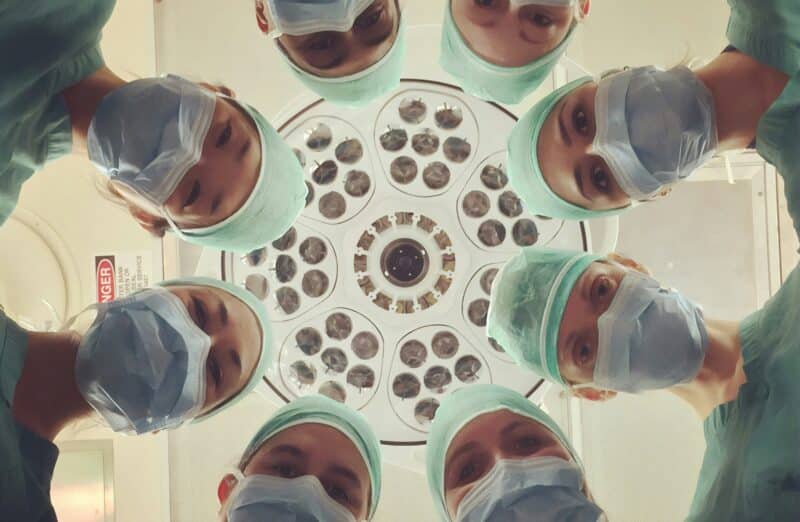
Surgical and operative support roles
Surgical and operative support roles focus on preparing, assisting, and ensuring the success of complex surgical procedures. These professionals work alongside surgeons, anaesthetists, and theatre nurses to provide sterile environments, monitor patient vitals, and ensure that operating theatres run smoothly. Their day-to-day responsibilities may involve setting up surgical instruments, assisting in procedures, monitoring patients under anaesthesia, and ensuring post-operative recovery support. They play a vital role in minimising risks and ensuring patient safety throughout surgical interventions.
Key roles: Operating department practitioners, anaesthetists, theatre nurses, surgical technicians
Skills & attributes: Attention to detail, teamwork, precision, and the ability to work under pressure.
These roles are ideal for those who: Enjoy fast-paced, high-stakes environments and have a passion for surgical care.
Scorecard
Salary Potential*
Flexible Hours
Flexible Location
Physicality
*based on a 40-hour working week
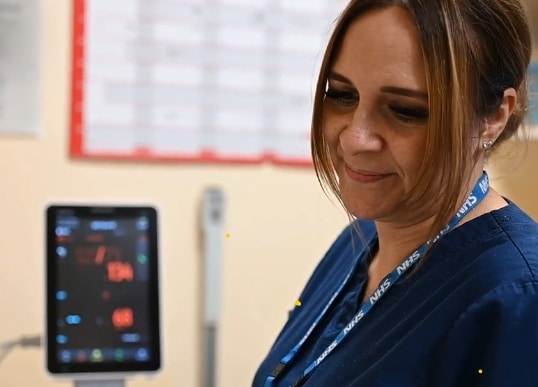
Rehabilitation and support roles
Rehabilitation and support roles focus on helping patients recover from severe medical conditions, injuries, or surgeries, ensuring they regain independence and improve their quality of life. These professionals work in hospitals, specialist clinics, and rehabilitation centres, providing therapies and long-term care plans tailored to individual patient needs. Daily tasks may include conducting physical therapy sessions, assisting with mobility exercises, helping patients adapt to prosthetics, or offering emotional and psychological support to aid recovery.
Key roles: Physiotherapists, occupational therapists, speech and language therapists, prosthetists, orthotists
Skills & attributes: Compassion, technical expertise, problem-solving, and excellent interpersonal skills.
These roles are ideal for those who: Enjoy working closely with patients, promoting long-term health and recovery.
Scorecard
Salary Potential*
Flexible Hours
Flexible Location
Physicality
*based on a 40-hour working week
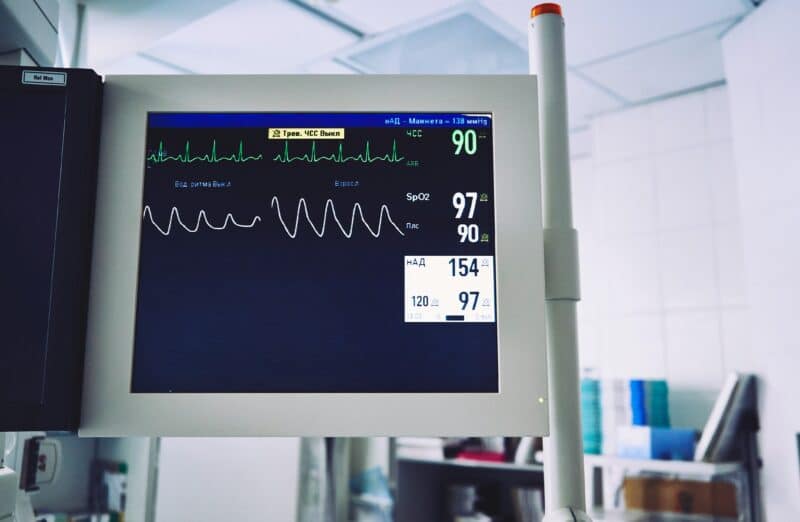
Emergency and intensive care support
Emergency and intensive care support roles are dedicated to stabilising critically ill or injured patients in high-pressure environments such as emergency departments, trauma centres, and intensive care units. These professionals work in fast-paced settings where quick thinking, expert knowledge, and decisive action can mean the difference between life and death. Their day-to-day work involves assessing emergency cases, administering urgent medical care, monitoring vital signs, and coordinating with specialists to ensure the best possible outcomes for patients.
Key roles: Critical care nurses, emergency physicians, paramedics, respiratory therapists
Skills & attributes: Quick thinking, adaptability, strong teamwork skills, and resilience under pressure.
These roles are ideal for those who: Thrive in high-stakes situations and have a passion for emergency medicine and critical care.
Scorecard
Salary Potential*
Flexible Hours
Flexible Location
Physicality
*based on a 40-hour working week
In addition to patient-facing and clinical roles, tertiary care facilities rely on essential support functions such as administration, finance, IT, HR, and facilities management. For more information on these departments and the roles they offer, click here to explore further.
For information on local courses and qualifications that could support your career in this field, please click here.

